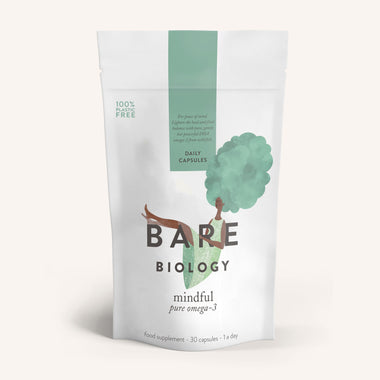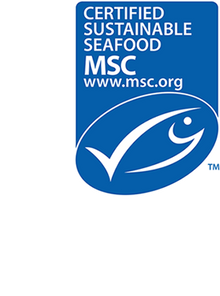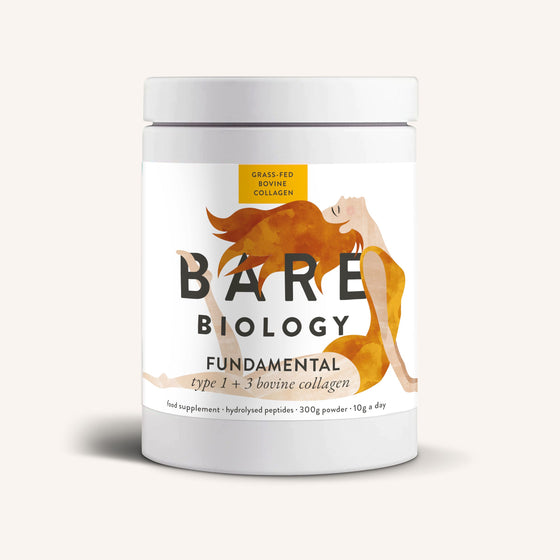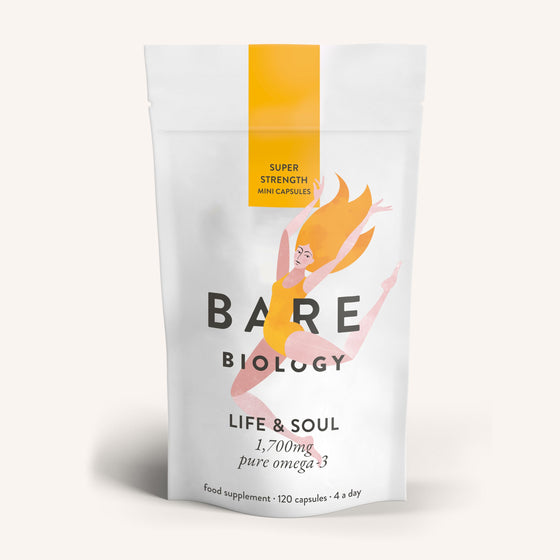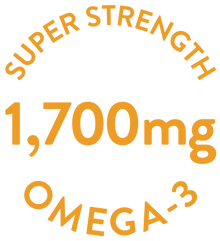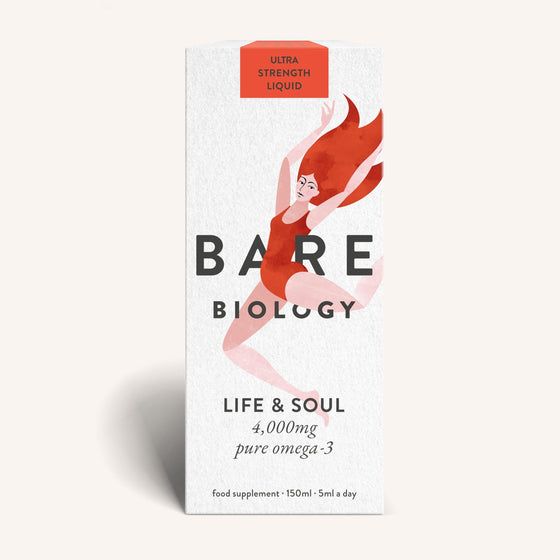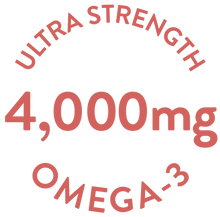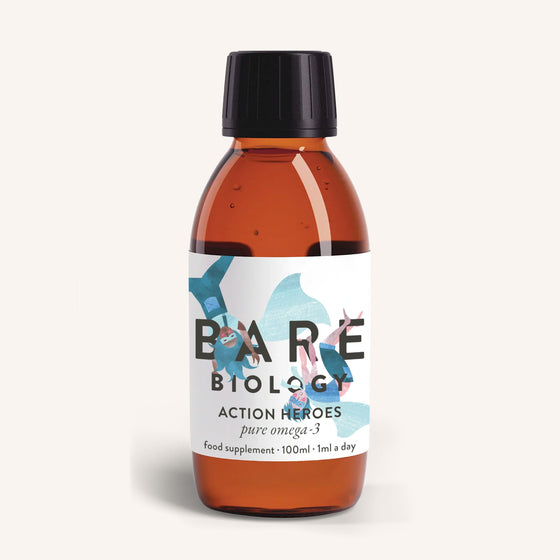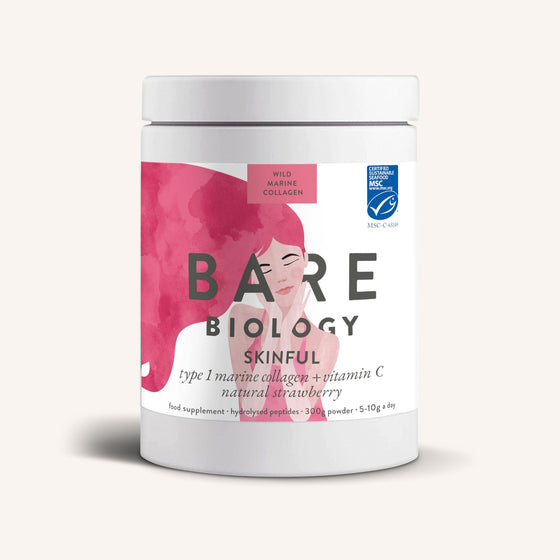Sustainability
CONTENTS
Sustainable fish supply
We’re about to get boring and detailed. (You have to with sustainability, or it sounds like hot air.) When it comes to our fish supply, here are the headlines: We make our omega-3 supplements with oil from wild, sustainably caught fish and source it from a Norwegian fish oil manufacturer certified by Friends of the Sea and Marin Trust. We source our collagen from the first MSC-certified manufacturer in the world and we’re also MSC certified. If suppliers don’t have a sustainability certification, we don’t continue the conversation. Difficult woman style.
Some criteria for Friend of the Sea
- Non-overexploited target stock according to FAO, Regional Fishery Bodies and National Marine Authorities
- Fishery to generate maximum 8% discards (which means marine waste)
- No by-caught species included in the IUCN red-list of endangered species
- No impact on the seabed
- Social accountability
- Compliance with legal requirements (incl. TACs, no IUU, no FOC, mesh size, min size, MPA, etc)
- Energy balance and yearly fuel efficiency improvement

Marin Trust (formerly known as IFFO-RS) Certification:
Marin Trust is a non-governmental organisation that oversees fisheries. They’ve developed a Global Standard and Certification Programme for the Responsible Supply of Fishmeal and Fish Oil. It’s all about responsible sourcing, production and supply practices – from making sure marine ingredients are tracked through the supply chain all the way down to worker safety. We appreciate their eco-system based approach which means they consider the broader impact on marine biodiversity. And the fact that they work with accredited, independent certification bodies that do audits and inspections to make sure they meet the Marin Trust standards.
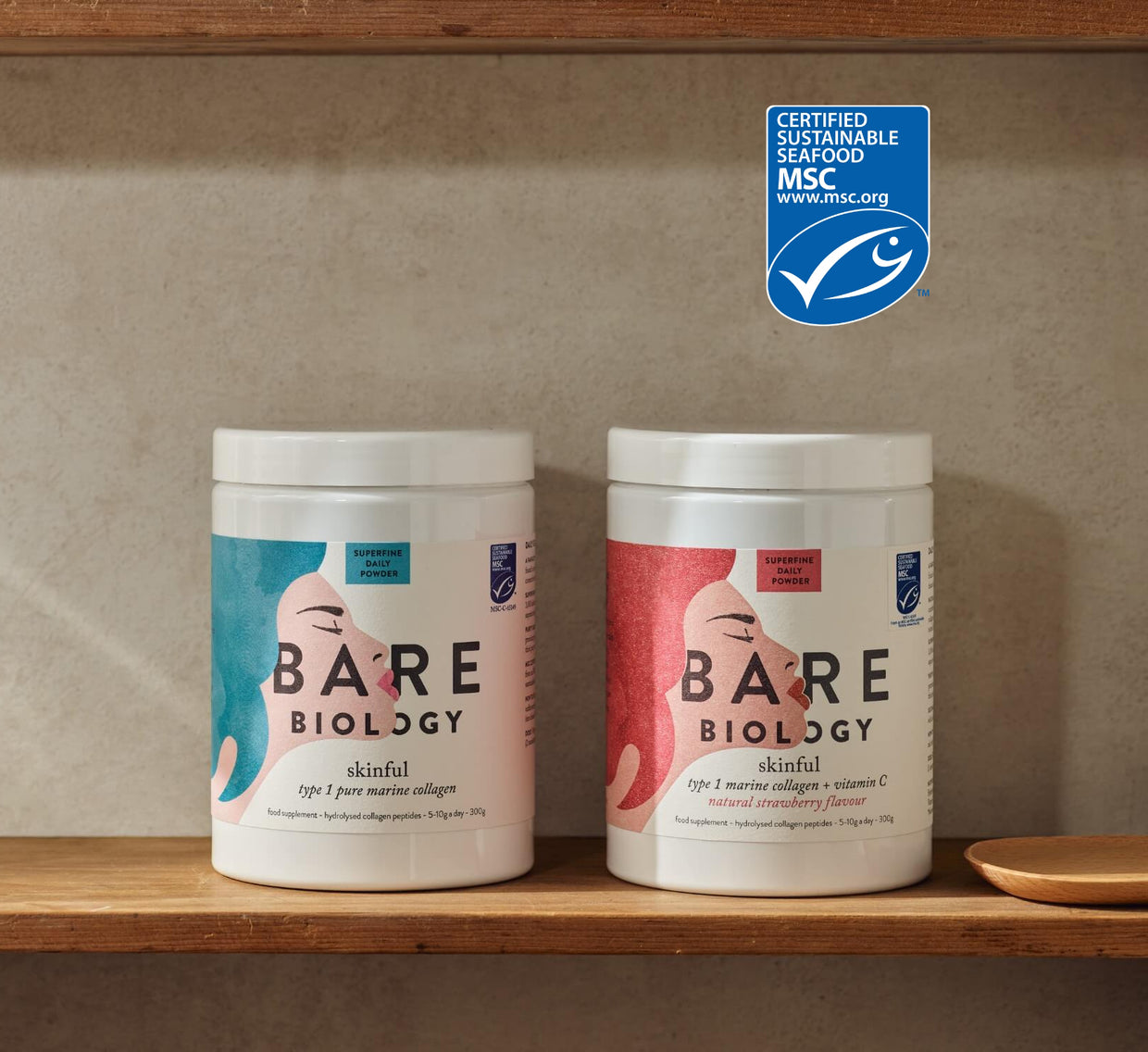
MSC Certified Marine Collagen
We’re one of the only MSC-certified marine collagens in the UK. (Our chain of custody code is MSC-C-65149 if you’d like to check). We chose our collagen supplier because they were the first MSC-certified collagen manufacturer in the world and are part of the Aqua Bio Profit project. This is an EU-funded project to help develop high-quality proteins from European aquaculture and fisheries. In short, it means our manufacturer only ever uses sustainable hydrolysed wild codfish skin discarded from the fillets (Gadus Morhua), which was once considered as waste and thrown away.

Our gelatin capsules are manufactured in the UK and the site is:
- They are also certified by the following bodies and are able to manufacture certifiable product according to their standards:
- Marine Steward Council (MSC)
- Friend of the Sea (FoS)
- Aquaculture Stewardship Council (ASC)
Manufacturing quality and certification
Our products are manufactured under a HACCP system, in an establishment approved by the Norwegian Food Safety Authorities and in compliance with the relevant parts of Norwegian and EU hygiene regulations for food: EC Regulation 852/2004 and EC Regulation 853/2004.
The products are manufactured in accordance with relevant laws, regulations and GMP principles for dietary ingredients in Norway, EU and USA, and in accordance with NSF GMP guidelines for dietary ingredients.


IFOS Certified
All of our omega-3 supplements are IFOS 5 Star Certified for purity, which means they're independently tested on top of the two rounds of tests we carry out. This is a guarantee the oil is pure, fresh and safe. For any of you that want to deep dive: on each of our product pages you can find the results for each batch.
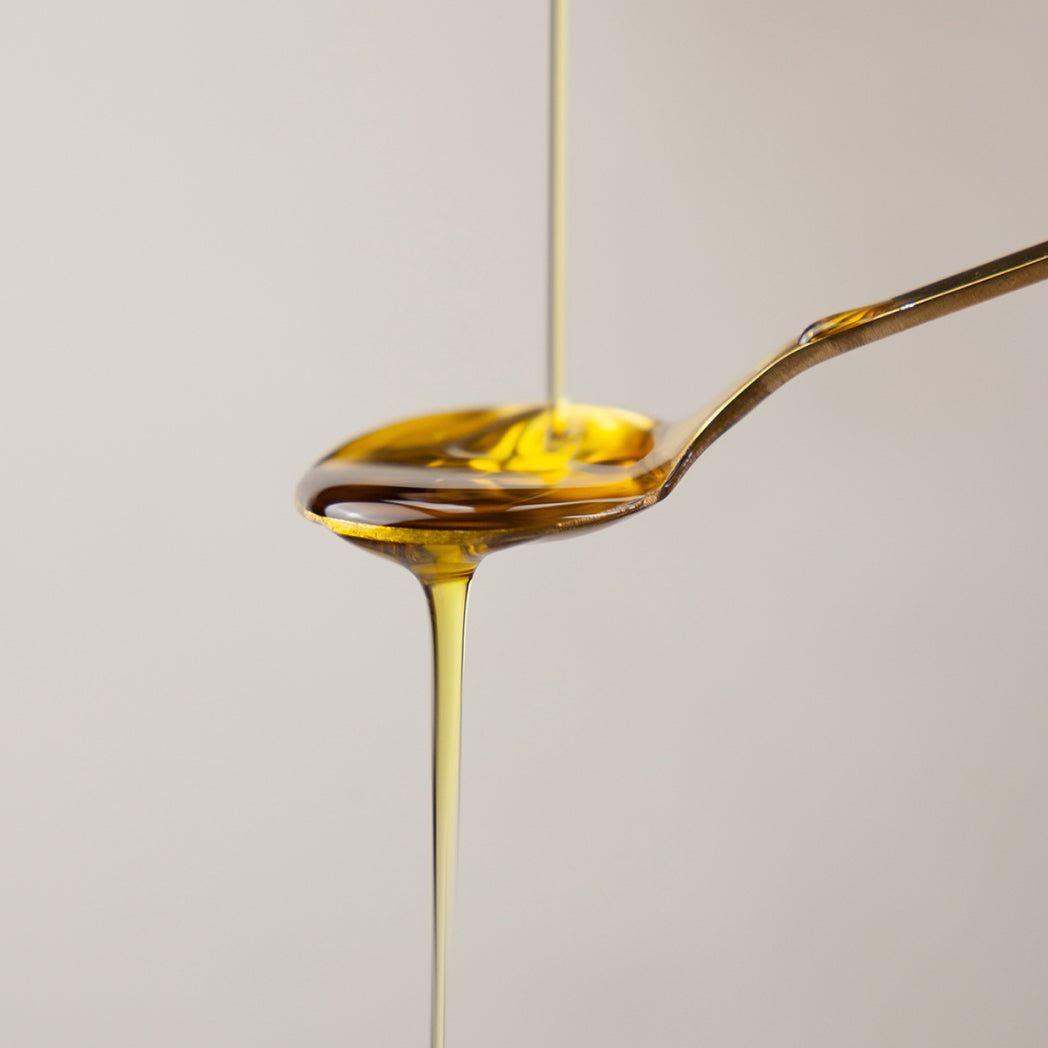

Why our pouches are not certified home compostable (but they will decompose at home)
All the individual materials we use in our pouches, primarily Tipa 302 and Natureflex, including the ink and the zipper, are certified compostable. However, once you put them together they become a different material which needs to be certified separately. This costs thousands of pounds and our manufacturer would have to certify each and every variation of pouch they produce, so they won’t do this. And it would make the cost of our supplements ridiculous.
However, the manufacturer has carried out its own tests and the pouches start to break down within 4 weeks. We’ve also done our own tests by burying a pouch in a plant pot (so not even proper composting conditions which are even better) and it had pretty much disappeared after 6 months.
There’s no perfect solution here, but we’ll keep asking the right questions and find one as technologies evolve.
Other good things about pouches
-
Letterbox Friendly
This should reduce missed deliveries – less back and forth in a van – and needs less packaging which reduces waste.
-
Resealable
You can use them to refill your glass jar, or use them on their own. They have a zipper which means you can reseal them.
-
Travel & Handbag Friendly
Our glass jars are heavier, bulkier and can break in your bag. Pouches are ideal for travel or keeping in your handbag.
-
100% Plastic Free
They're made from paper, cellulose and zero plastic.
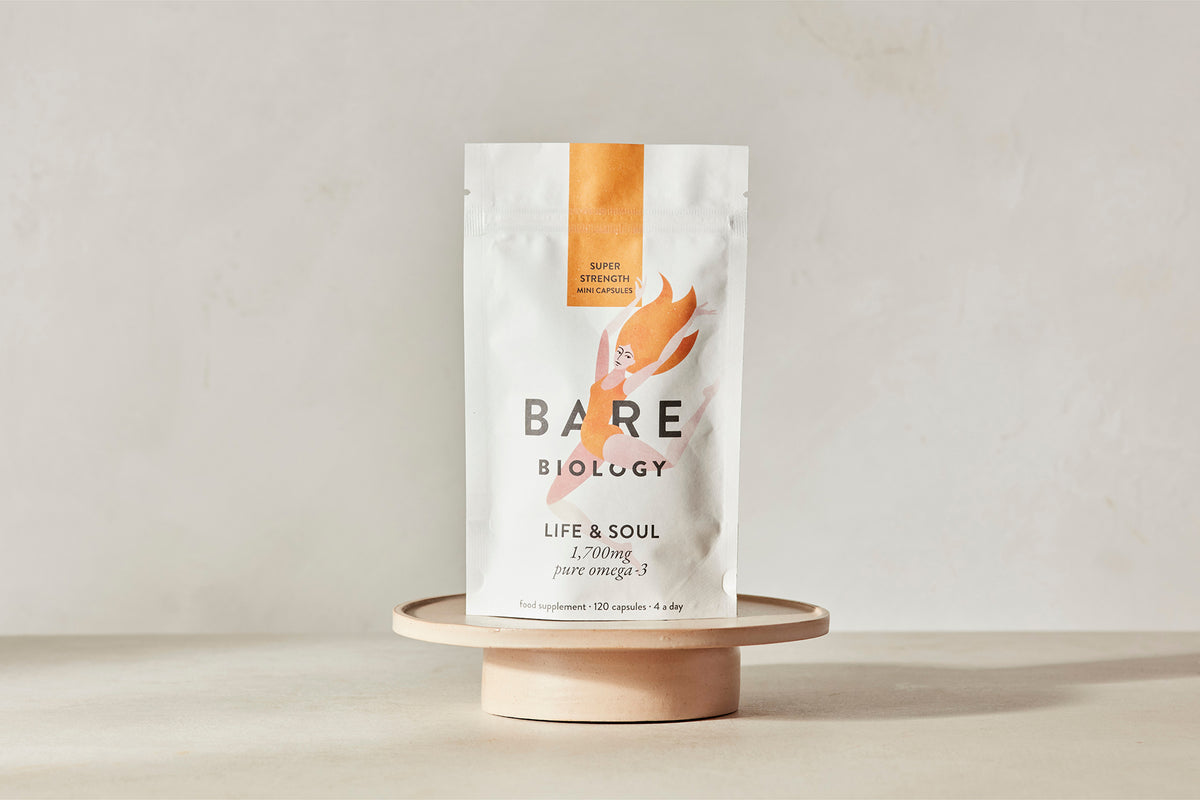
The rest of our packaging
All our cartons, jars, bottles, lids and plastic tubs are 100% recyclable. They’re all sourced in Norway and the UK so they haven’t been shipped halfway across the world. None of our components come from China, meaning lots of air or sea miles are avoided.
We work with a warehouse who is as hot on minimal postal packaging as we are. We never use plastic, excessive amounts of padding or unnecessarily large boxes (it’s SO annoying when companies do that). We also don’t do sexy, Instagrammable pretty postal boxes. They look nice, but they’re unnecessary.








